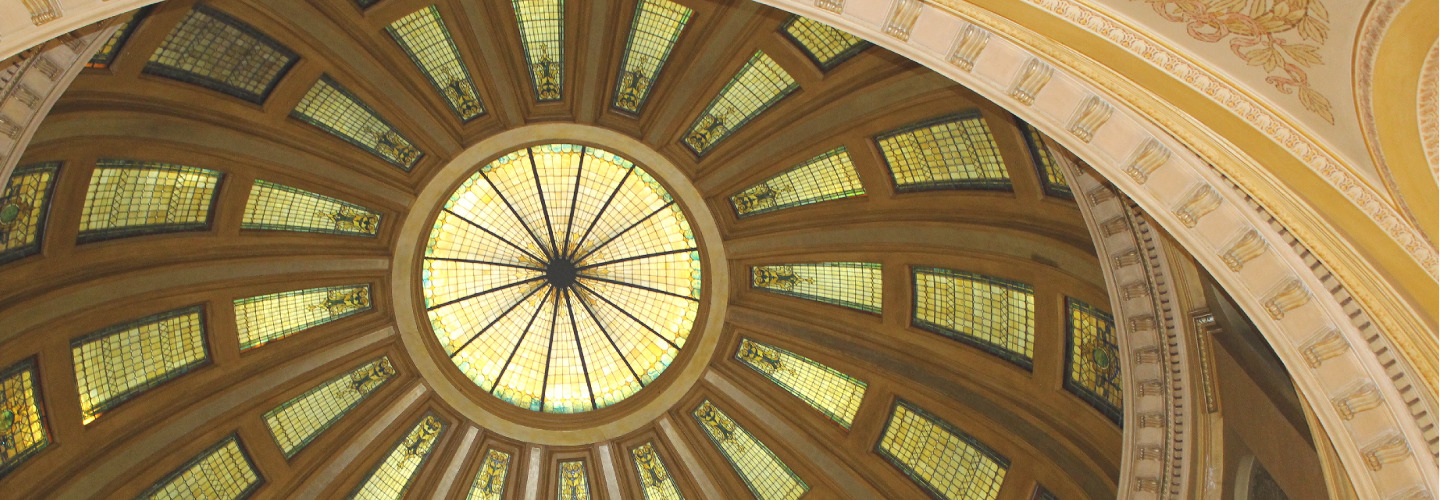
Six ballot measures possible for 2022
Don’t you just love this time of year when you are approached by folks with clipboards asking you to sign their petition? Some South Dakotans would answer “Not really.” Others would say, “Yes!”
As a whole, South Dakotas love voting on initiated measures.
Either way, we have entered the high season of ballot measures! Exciting times to be sure. Did you know South Dakota was the first state to allow citizen engagement through the initiative and referendum on a statewide level? It 1898, our state allowed citizens to propose initiated state statutes. However, the right to amend the South Dakota Constitution through the ballot initiative process was not extended to South Dakota voters until 1972. As a whole, South Dakotas love voting on initiated measures.
Consider this research reported by South Dakota News Watch:
According to a recent statewide poll conducted in late April through a partnership between South Dakota News Watch and the Chiesman Center for Democracy at the University of South Dakota, a wide majority of South Dakota residents supports the citizen-led ballot-initiative process as a way to make laws or change the state constitution, and a significant majority said they don’t want the state Legislature to make the process more difficult.
Specifically, the statewide telephone poll of 500 South Dakota residents from across the state, indicated that 74.8% of respondents said they agreed or strongly agreed that “citizen ballot initiatives are an important part of the democratic process.” On a follow-up question, 62.6% of respondents said they disagreed or strongly disagreed that “the South Dakota Legislature should make it more difficult for citizen initiatives to get onto the ballot.”
South Dakotans will have another opportunity to weigh in on ballots measures next year. There are six ballot measures being circulated for the 2022 election cycle. These ballot measures include:
- An initiated measure expanding Medicaid eligibility.
- An initiated amendment to the South Dakota Constitution expanding Medicaid eligibility. (v.1)
- An initiated amendment to the South Dakota Constitution regarding establishing a redistricting commission.
- An initiated amendment to the South Dakota Constitution expanding Medicaid eligibility. (v.2)
- An initiated amendment to the South Dakota Constitution expanding Medicaid eligibility. (v.3)
- An amendment to the South Dakota Constitution establishing top-two primary elections.
Note: you can find detailed information for each ballot measure on the South Dakota Secretary of State’s website (sdsos.gov).
In addition, the state legislature has placed a ballot measure, HJR 5003, on the ballot in 2022 as well. HJR 5003, now Constitutional Amendment C, (Amendment C) proposes and submits to the voters a new section to Article XI of the Constitution of the State of South Dakota, requiring a three-fifths vote (rather than a simple majority vote) for certain initiated or legislature-proposed constitutional amendments and initiated or legislature-referred measures that may increase taxes or fees that obligate the state to appropriate funds of ten million dollars or more in any of the first five fiscal years after enactment.
Unlike the other ballot measures listed above, Amendment C will not be on the general election ballot in November of 2022. Rather, the legislature chose to place Amendment C on the June 2022 primary ballot through a last-minute procedural maneuver in the Senate. The Senate vote to move Amendment C to the June primary passed by the slimmest of margins with a 18/17 vote.
Why would the Senate place Amendment C on the June primary election? There are several theories.
You may have noticed four out of the six petitions ballot measures that are being circulated are focused on expanding Medicaid eligibility to ensure essential health services are available to all communities in South Dakota. South Dakota is one of 14 states that has resisted Medicaid expansion efforts. If Amendment C passes in June, any ballot measure seeking to appropriate funds of ten million dollars or more in any of the first five fiscal years after enactment will require a higher voter threshold of 3/5th voter approval. In other words, moving Constitutional Amendment C to the primary election opens the door to create a higher voter approval rate of a general election ballot measure seeking to expand Medicaid.
Another theory as to why Amendment C was moved to the June primary is the impact of lower voter engagement. South Dakota voter turn-out is substantially lower in the primary election than in the general election. Consider voter turn-out data from the past several years:
- 2020 Election: Primary 28.22%: General Election 73.88%
- 2018 Election: Primary 26.57%; General Election 64.98%
- 2016 Election: Primary 21.94%; General Election 69.62%
- 2014 Election: Primary 19.22%; General Election 54.18%
What reaction will the voters have to Amendment C? We will know this answer next June after the voters weigh-in with their vote. However, if history is any indication, asking the voters to approve a higher voter threshold has not been seen favorably. Afterall, Amendment C is not the first attempt of the legislature to raise the voter approval threshold on ballot measures. Remember Constitutional Amendment X? In November of 2018, the voters rejected Amendment X with a 55%/45% vote. Amendment X would have required a 55% supermajority voter approval rather than 50% +1.
Although voters won’t weigh in on any ballot measures until 2022, they are being asked to sign petitions to place citizen-initiated measures on the ballot. Keep an eye out for those circulators and ask questions about the proposed laws. Those petition circulators will only be around for a short time as all petitions must be turned into the Secretary of State on November 8, 2021.
Note: The Greater Sioux Falls Chamber of Commerce does not take a position on any measure until after it has qualified for the ballot.

Debra Owen
Greater Sioux Falls Chamber of Commerce